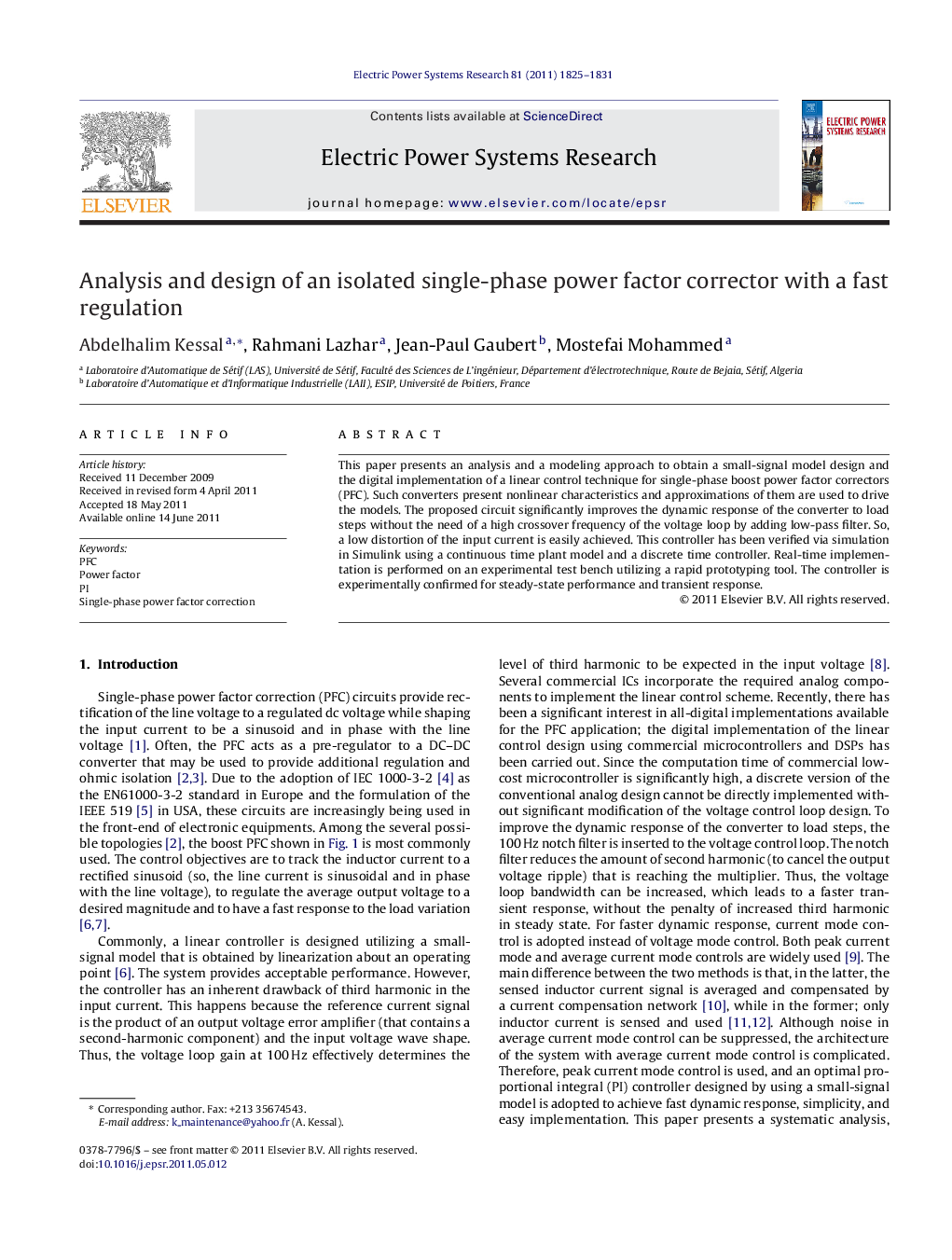| Article ID | Journal | Published Year | Pages | File Type |
|---|---|---|---|---|
| 705394 | Electric Power Systems Research | 2011 | 7 Pages |
This paper presents an analysis and a modeling approach to obtain a small-signal model design and the digital implementation of a linear control technique for single-phase boost power factor correctors (PFC). Such converters present nonlinear characteristics and approximations of them are used to drive the models. The proposed circuit significantly improves the dynamic response of the converter to load steps without the need of a high crossover frequency of the voltage loop by adding low-pass filter. So, a low distortion of the input current is easily achieved. This controller has been verified via simulation in Simulink using a continuous time plant model and a discrete time controller. Real-time implementation is performed on an experimental test bench utilizing a rapid prototyping tool. The controller is experimentally confirmed for steady-state performance and transient response.
► The theoretical analysis of the power factor corrector of a boost converter. ► Mathematical calculation of the various components of PFC circuit and PI parameters. ► Real-time implementation of the PFC is performed on an experimental test bench using a DSPACE1104. ► The controller is experimentally confirmed for steady-state performance and transient response. ► The results obtained as power factor and harmonic distortions, and the time response, show good performances in practice.
